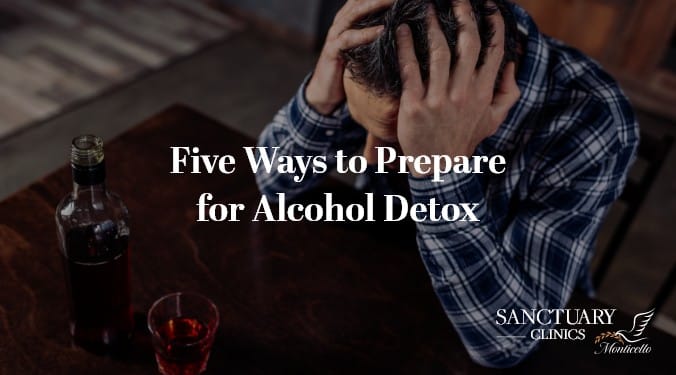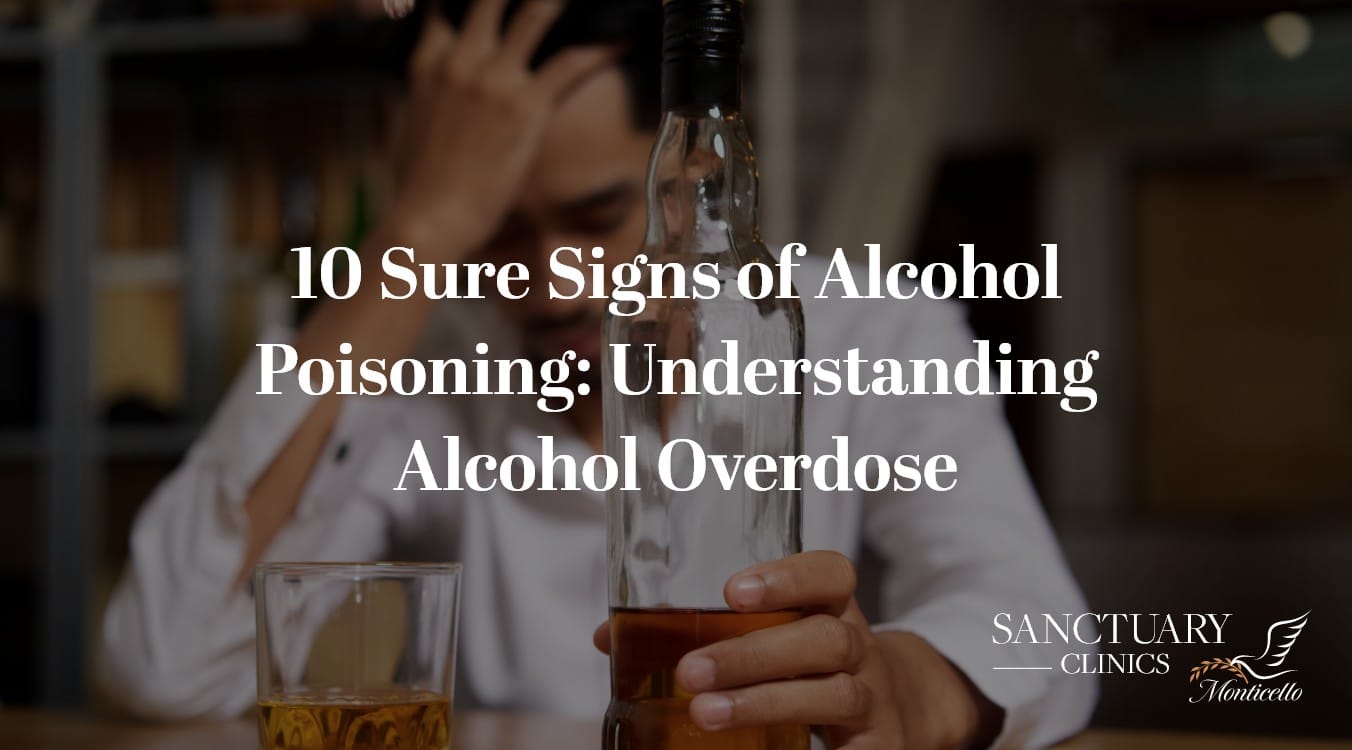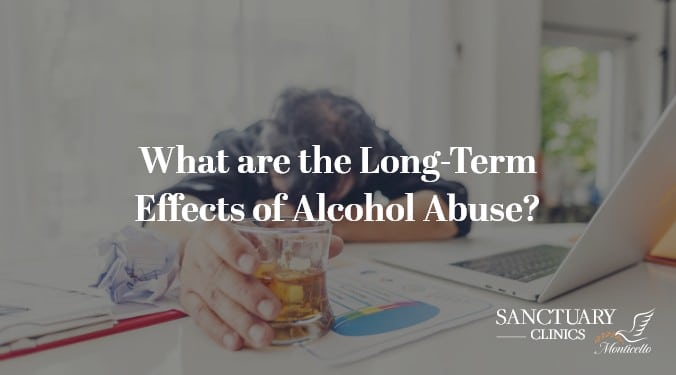Alcohol detox is the natural process which occurs in the body as it attempts to rid your system of waste products and toxins from excessive, long-term alcohol consumption. Alcohol detox in a treatment setting is usually accompanied by medication, medical observation, and counseling.
In preparing for alcohol detox, you need to keep your family and financial obligations in mind. You will need to spend time for your family and make sure they are cared for. You need to arrange for payments to be made to the rehab center. You’ll need to talk with your employer. And you should plan to bring with you only the most basic essentials.
Importance of alcohol detox
Alcohol is a depressant. Your body begins to rely on it over months and years of usage. Your brain eventually ceases producing a certain chemical it receives from alcohol and becomes dependent on it. Moreover, long-term abuse of alcohol changes the shape of your brain and affects your central nervous system. Even though there are withdrawal symptoms you might be fearful of while going through detox, it is important to know reliance on alcohol, in the long run, has far more damaging effects.
Five ways to prepare for alcohol detox
1. Take care of work obligations
According to Honey Lake Clinic, inform your employer you will be away from work for some time so you don’t worry about losing your job while you’re in detox. You may be hesitant to share such information with your boss, but anyone who appreciates you as an employee will want you to get better.
2. Take care of family obligations
If you are a parent or caregiver to children, elderly parents, or even your pets, it is important to make sure these responsibilities are taken care of while you are away. You may ask friends or family to assist you by taking care of those who need to be cared for or check on temporary care options. This will help put your mind at ease to know your loved ones are in good hands.
3. Take care of any financial or legal loose ends
It is important to take care of any bills and obligations even if you’ll be away for a short while. Payments for your alcohol detox will need to be arranged or automatedly sent. If that is not a possibility, speak to someone you trust about getting the bill paid on time. It is also crucial to confirm with your insurance provider everything is set to pay for your treatment. If you have any legal obligations, probation stipulations, or court dates, be sure your time away for treatment is documented. It is better to have this sorted early than to come back only to be confronted by legal stress.
4. Make sure to only pack your essentials
It can be tempting to carry everything which reminds you of home, but only taking what you need will ensure you get the most out of your treatment. In addition, you will minimize outside distractions which can compromise your sobriety. While in rehab, your focus should be on you getting better. The rest of your things will be there when you get back.
5. Spend quality time with friends and family
It is important to spend time with the significant people in your life before you leave. Friends and family will inspire you to make the most of the treatment you will be receiving and will reassure you of your decision to get help. Let them know how much you appreciate their love and support. And tell them about the expected changes you hope to see in yourself after the treatment.
What are the steps of alcohol detox?
1. Intake assessment
According to Orlando Recovery Center, once you have been admitted to addiction treatment or a detox facility, you should communicate with their staff about logistics. You will be required to be as honest as possible about your alcohol addiction to get the right treatment for you.
2. Treatment assessment
Medical screenings will be completed to measure the level of alcohol in your urine and blood. Other medical tests will be carried out to rule out any other mental health disorders such as anxiety, bipolar, or depression. These tests are necessary to create a personalized treatment plan which will treat every aspect of your addiction.
3. Medications prescribed if needed
During alcohol detox, you’ll most likely experience withdrawal symptoms. Most people start experiencing withdrawal symptoms five to 10 hours after they stop drinking. Medical professionals will monitor your symptoms and make sure no dangers arise. They will prescribe medication if necessary.
Several medications which could be administered during the alcohol detox phase:
- Benzodiazepines – According to the Alcohol Rehab Guide, this medication is normally used to help treat side-effects from withdrawal, but they are not given in every case. They are used to help calm your central nervous system and may be prescribed to treat insomnia, muscle spasms, and anxiety. The medication comes in two forms: short-acting and long-acting. Long-acting is usually administered for three days or taken as needed.
- Acamprosate – Years of heavy drinking can alter how your brain looks and works. This drug is sold under the name Campral and is prescribed to help your brain function normally again after you quit drinking. Research is being looked into to see whether the drug can relieve insomnia, restlessness, and anxiety symptoms. It also aids in reducing alcohol cravings, but it will not produce an unwanted effect if alcohol is consumed.
- Naltrexone – This drug helps reduce alcohol cravings during the detoxing stage. If you relapse, naltrexone works by preventing the high feeling alcohol may cause. Since the medication can stimulate withdrawal symptoms, it is recommended you wait seven to 10 days before taking the drug. It is found in two forms: tablet and injectable. The pill form of naltrexone is sold under the brand names ReVia and Depade, while the injectable is Vivitrol.
- Disulfiram – Unlike other medications, this drug works by producing severe reactions if alcohol is consumed. For example, if you consume alcohol while on Disulfiram, you will experience unwanted effects like nausea, headache, face flushing, weakness, and low blood pressure. The negative effects are meant to discourage you from continuing your drinking pattern. Disulfiram is not meant to reduce your alcohol cravings or restore brain function.
4. Maintain hydration and boost overall health
A common side effect of alcohol abuse is dehydration and poor nutrition. Many detox programs use vitamin B supplements, iron, and folic acid to boost overall health. Neutral broths and herbal teas are also given to maintain hydration needs.
5. The treatment plan in action
Alcohol detox is only the beginning of addiction treatment. Once you have been properly diagnosed and all harmful substances are flushed out, your personalized treatment begins. Alcohol detox helps cleanse your body of alcohol but also treats the underlying psychological aspects of your disease. This treatment helps uncover your triggers and helps you develop coping mechanisms as well as learning to manage your emotions.
Detox doesn’t cure addiction. That is why it is important to continue with your medically supervised therapies. Therapy will help you by giving you the tools needed for a drug and alcohol-free life.
What are the symptoms of alcohol detox?
According to the Addiction Center, medically assisted detox limits some negative side-effects however some side-effects are still unavoidable.
Phase 1: During acute withdrawal
This happens hours after you last stopped drinking and continues for days or weeks. This is generally when the most severe side effects occur. They include:
- Nausea
- Anxiety
- Whole body tremors
- Convulsions
- Visual and auditory hallucinations
- Profuse sweating
- Insomnia
- Shakiness
- Heart failure
- Hypertension
Phase 2: During early abstinence
The second and longer phase of alcohol detox happens over months as your brain slowly begins to regulate and get back to normal functioning. This is known as post-acute withdrawal symptom and includes:
- Restlessness
- Insomnia
- Anxiety
- Diminished appetite
- Mood swings
- Depression
What are the dangers of detoxing alone?
Particularly in the cases of long-term alcohol abusers, detoxing alone can be dangerous and even fatal. Though rare, some of the severe side effects include:
- Aspiration pneumonia
- Headache
- Seizures
- Anxiety
- Heart arrhythmias
- Kidney and liver dysfunction
- Fever
- Intense cravings
- Depression
- Hallucinations
- Extreme nausea
It is always recommended to seek medical help for alcohol detox to mitigate these side effects.
How long does alcohol detox take?
There is no exact timeline as to when or what withdrawal symptoms you will experience. However there is a general outline of what to expect:
First six to twelve hours
Symptoms are mild but quickly begin to worsen as time goes on. Some symptoms include irritability, shaking, nausea, and headache.
Day one
As you approach the end of a whole day, symptoms may become increasingly severe. Alongside the effects felt from the first 12 hours, additional symptoms may involve hand tremors, seizures, and disorientation.
Day two
Similar to the first full day of detox, the most painful symptoms continue into the second day. Hallucinations and panic attacks are common during this time as your body rids alcohol from its system.
Days three to seven
For the remainder of your first week in detox, different symptoms may come and go. However, it is also the timeframe where you are most at risk for life-threatening symptoms such as delirium tremens. According to Medscape, delirium tremens or DT is the most severe form of alcohol withdrawal, manifested by altered mental status and sympathetic overdrive, which can progress to heart failure.
After one week
After you have completed one week of detox, many of the withdrawal symptoms will begin to taper off. While some will persist for a few weeks. Most of them are minor symptoms and can be treated with medication. Even after this, some people may experience post-acute withdrawal symptoms (PAWS) – the prolonged symptoms of detox. These symptoms include low energy, delayed reflexes, and trouble sleeping, and can last several months to a year.
Sources
Delirium Tremens (DTs): Practice Essentials, Background, Pathophysiology. (2020). EMedicine. https://emedicine.medscape.com/article/166032-overview
Fitzgerald, K. (2016, June 8). 5 Steps to Alcohol Detox. Orlando Recovery Center. https://www.orlandorecovery.com/blog/steps-alcohol-detox/#gref
5 Ways to Prepare for Alcohol Detox. (2018, June 7). Honey Lake Clinic. https://www.honeylake.clinic/5-ways-to-prepare-for-alcohol-detox/
Galbicsek, C. (2019). Alcohol Withdrawal and Detox – Alcohol Rehab Guide. Alcohol Rehab Guide. https://www.alcoholrehabguide.org/treatment/alcohol-detox/
Alcohol Detox: The First Step of Alcoholism Treatment – Addiction Center. (2018). AddictionCenter. https://www.addictioncenter.com/alcohol/detox/









